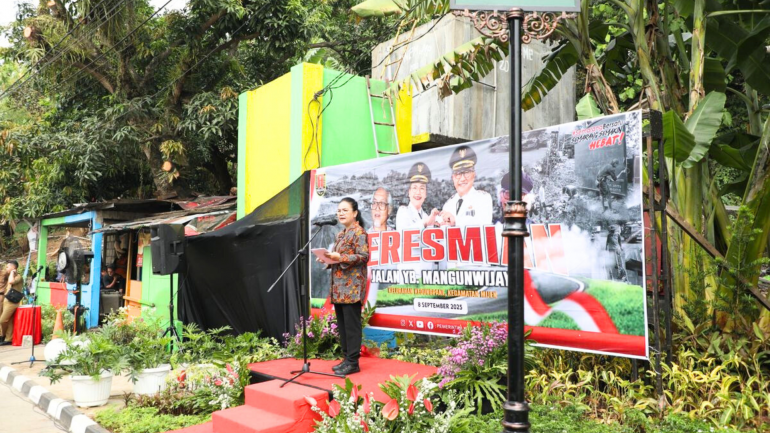Indonesia Honors Romo Mangun, Catholic Priest Who Stood with the Marginalized

A local government in Indonesia has named a street in Semarang, the capital of Central Java Province, “Yusuf Bilyarta (YB) Mangunwijaya Street” after a Catholic priest, in recognition of his work among the poor and marginalized.
Presiding over the ceremony on September 8, the city’s mayor and a devout Catholic, said, “Naming the street after YB Mangunwijaya was not only a tribute to the late humanist and Semarang Diocese priest but also a moral message that an area often associated with waste could instead grow into a space of hope. This naming is a small effort by the Semarang City Government to honour Romo Mangun.” The street serves as the main access to the Jatibarang Final Disposal Site (TPA).
The Semarang Local Government’s decision to grant the priest’s name to the new local street has been widely noted as a national move initiated by the so-called “IKAFITE”, a Yogyakarta-based Philo-Theology IFT alumni group, who in recent months compiled documents supporting the idea that the Indonesian Administration would likely grant the late Father YB Mangunwijaya the title of national hero.
Speaking to Radio Veritas Asia, YC Tukiman Taruna Sayoga, a key figure with IKAFITE, said, “I was at the site when this decision to name this new street in Semarang City was intensively deliberated.”
Romo Mangun, a champion of humanity
Father Yusuf Bilyarta Mangunwijaya Pr, affectionately known as Romo (Father) Mangun, was a diocesan priest of the Archdiocese of Semarang, a professional architect trained in Aachen, Germany, a writer, and a humanitarian born in Ambarawa, Central Java.
He received the SEA Write Award (1986) and the Aga Khan Award for Architecture (1992) for his work in transforming the formerly slum area of Kampung Kali Code in Yogyakarta into a colourful, liveable neighbourhood.
Romo Mangun was also a staunch defender of the poor, notably during the Kedungombo Dam project in the 1980s.
During his student years in Germany, he befriended BJ Habibie, who would later become President of Indonesia. Their friendship began when Habibie invited him to pray together at a Catholic church, even though Habibie was Muslim. The two remained close friends ever since.
When Romo Mangun passed away in Jakarta from a heart attack during a national education seminar on February 10, 1999, President Habibie paid his respects at Jakarta Cathedral and arranged for a Hercules aircraft to transport Romo Mangun’s body to Yogyakarta for burial.

A location full of meaning
Mayor Agustina emphasized that choosing the road to Jatibarang Landfill was in line with Romo Mangun’s spirit of standing with marginalized communities in underprivileged areas. “If only Romo Mangun were still alive, he would surely choose to stand in places like this, among those pushed aside. It was there that he always lit the flame of hope,” she said.
She expressed hope that his spirit would inspire sustainable waste management in Jatibarang through circular economy practices, sanitary landfill systems, and the Waste-to-Energy Power Plant (PLTS) project. Currently, the Semarang City Government is preparing an international tender to convert waste into electricity.
Appreciation from the Archdiocese of Semarang
The inauguration also received appreciation from the Archdiocese of Semarang. Representing Archbishop Msgr. Robertus Rubiyatmoko, Vicar General Romo FX Sugiyana, expressed gratitude to the city government. “This is an extraordinary tribute with a very profound message. The choice of location is also meaningful. If the road were in the city centre or a luxury residential area, Romo Mangun might not have felt at home. But here, leading to the landfill, it truly reflects his spirit,” Romo Sugiyana said.
He hoped that naming the street would not only serve as a reminder but also revive Romo Mangun’s enduring spirit of siding with the poor and caring for the environment. “May it not just be the street’s name that people remember, but also Romo Mangun’s fighting spirit that continues to inspire the people of Semarang,” he added.








